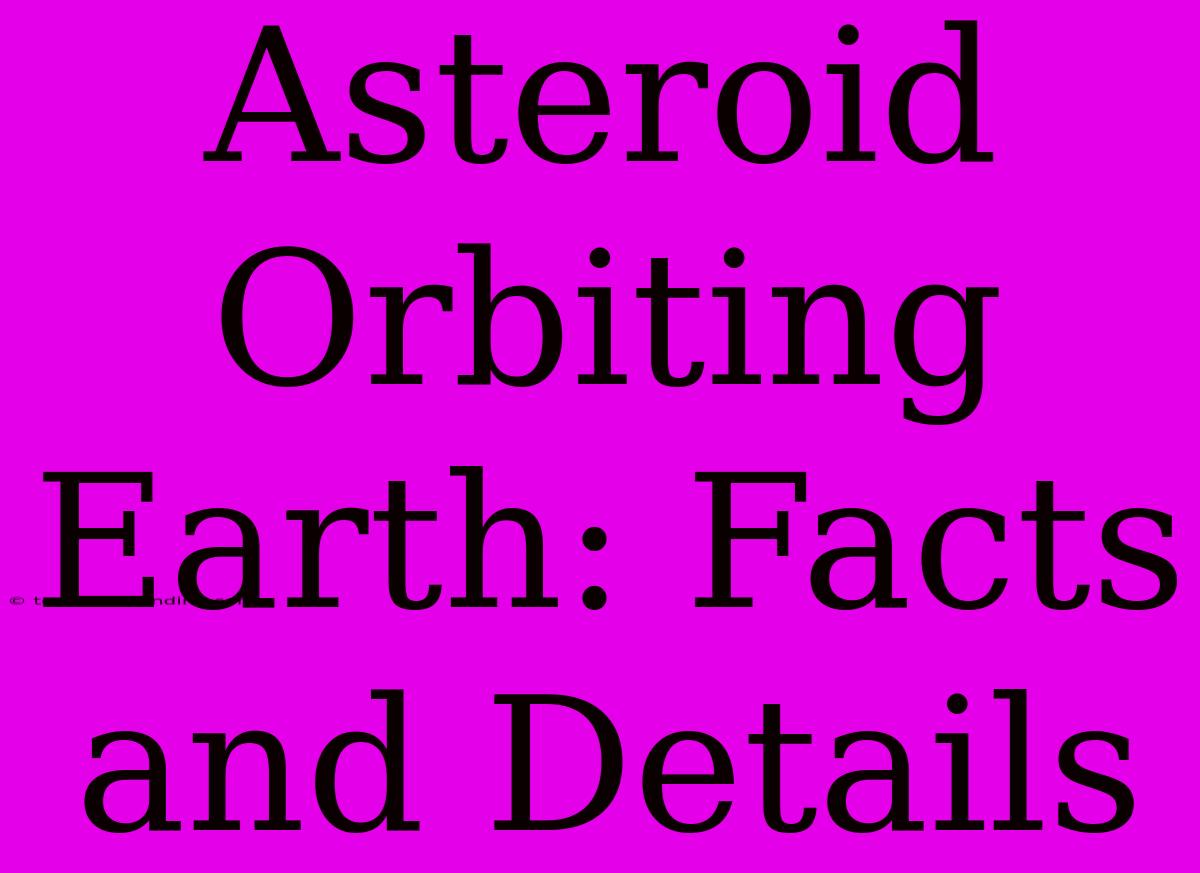Asteroid Orbiting Earth: Facts and Details
The vastness of space holds a captivating and somewhat unsettling truth: we share our celestial neighborhood with countless celestial bodies, some of which pose potential threats. Among these space travelers are asteroids, remnants of the early solar system that often travel in unpredictable orbits. While most asteroids reside in the asteroid belt between Mars and Jupiter, some find themselves in a peculiar dance with Earth.
What is an Earth-Orbiting Asteroid?
An Earth-orbiting asteroid, also known as a near-Earth asteroid or NEA, is an asteroid whose orbit brings it close to Earth. This doesn't mean they necessarily orbit our planet, but rather, they share a portion of their orbital path with Earth. These asteroids can range in size from a few meters to several kilometers in diameter.
Why Are Earth-Orbiting Asteroids Important?
Understanding Earth-orbiting asteroids is crucial for several reasons:
- Potential for Impact: While the odds of a significant asteroid impact are low, the consequences could be catastrophic.
- Scientific Value: Studying these asteroids offers invaluable insights into the formation and evolution of our solar system.
- Resource Potential: Some NEAs could potentially hold valuable resources like minerals and water, which could be harvested for future space exploration.
Famous Earth-Orbiting Asteroids:
- (4660) Nereus: A 330-meter wide asteroid that comes within 3.9 million kilometers of Earth.
- (99942) Apophis: A 340-meter wide asteroid that made headlines in 2004 due to the initial prediction of a high impact probability in 2029. However, further observations ruled out a direct impact, although it will come incredibly close to Earth.
- (101955) Bennu: A 500-meter wide asteroid that is the target of NASA's OSIRIS-REx mission, which aims to collect a sample of the asteroid's surface and bring it back to Earth.
How We Track Earth-Orbiting Asteroids:
Astronomers use powerful telescopes around the world to detect, track, and characterize NEAs. This data is crucial for predicting their orbits and assessing potential impact risks.
- Space-based Telescopes: Telescopes like the Hubble Space Telescope and the Spitzer Space Telescope play a significant role in identifying and studying NEAs.
- Earth-based Observatories: Ground-based observatories like the Arecibo Observatory and the Very Large Array contribute significantly to the study of NEAs.
Deflection and Mitigation:
With the threat of asteroid impact, efforts are underway to develop technologies capable of deflecting NEAs from their collision courses. These technologies include:
- Kinetic Impactor: This method involves launching a spacecraft to collide with the asteroid, altering its trajectory.
- Gravity Tractor: A spacecraft would use its gravitational pull to gently tug the asteroid away from Earth.
- Nuclear Detonation: While the most controversial, this method could involve detonating a nuclear device near the asteroid, creating a force to alter its path.
The Future of Earth-Orbiting Asteroids:
As our understanding of NEAs grows, we are better equipped to predict their movements and assess their potential threats. With ongoing research and technological advancements, we are striving to ensure the safety of our planet from these celestial wanderers. The study of Earth-orbiting asteroids offers a unique window into the past, present, and future of our solar system, reminding us of the dynamic and ever-changing nature of the cosmos.

